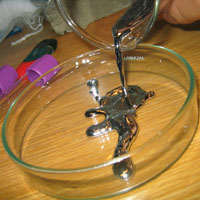
| Mercury Poisoning Concealed | 16 October 09 |
 A Japanese publication about methyl mercury poisoning exposes former Canada Prime Minister Pierre Trudeau blocking publication of studies about mercury problem at Grassy Narrows First Nation in northwestern Ontario. A Japanese publication about methyl mercury poisoning exposes former Canada Prime Minister Pierre Trudeau blocking publication of studies about mercury problem at Grassy Narrows First Nation in northwestern Ontario.The book entitled "Niigata Minimata Disease: Methyl Mercury Poisoning in Niigata, Japan" by Dr. Saito Hisashi quotes witness testimony by Dr. Shiraki Hirotsugu who worked with mercury poisoning in the Ontario community in 1979. Translation into English is recent. Dr. Andre Barbeau, director of the Clinical Research Institute in Montreal investigated pathology of cats at Grassy Narrows and concluded organic mercury poisoning was present. Prime Minister Trudeau advised Dr. Barbeau against publishing his findings. Dr. Barbeau confided in Dr. Hirotsugu his fears he may be forced to resign if the study was made public. The studies were never published and both Dr. Barbeau and Dr. Hirotsugu have since passed away. Between 1962 and 1975, Dryden Chemicals Ltd. released over 10 tonnes of mercury into the Wabigoon River. The pollution spread east and poisoned fish, a main staple for the communities. Methyl mercury causes numbness in the hands and feet, narrowed field of vision, slurred speech, paralysis, possible death. Grassy Narrows and Whitedog received a multi-million settlement in 1985 from the Canadian government. There is evidence mercury contamination is an ongoing problem, yet no remediation or further studies to measure the effects of mercury exposure have been undertaken. View October 12, 2009 Intercontinental Cry articleView November 1, 1970 CBC broadcast Sources: Intercontinental Cry, CBC |
|
 Print version Print version |
Top |
